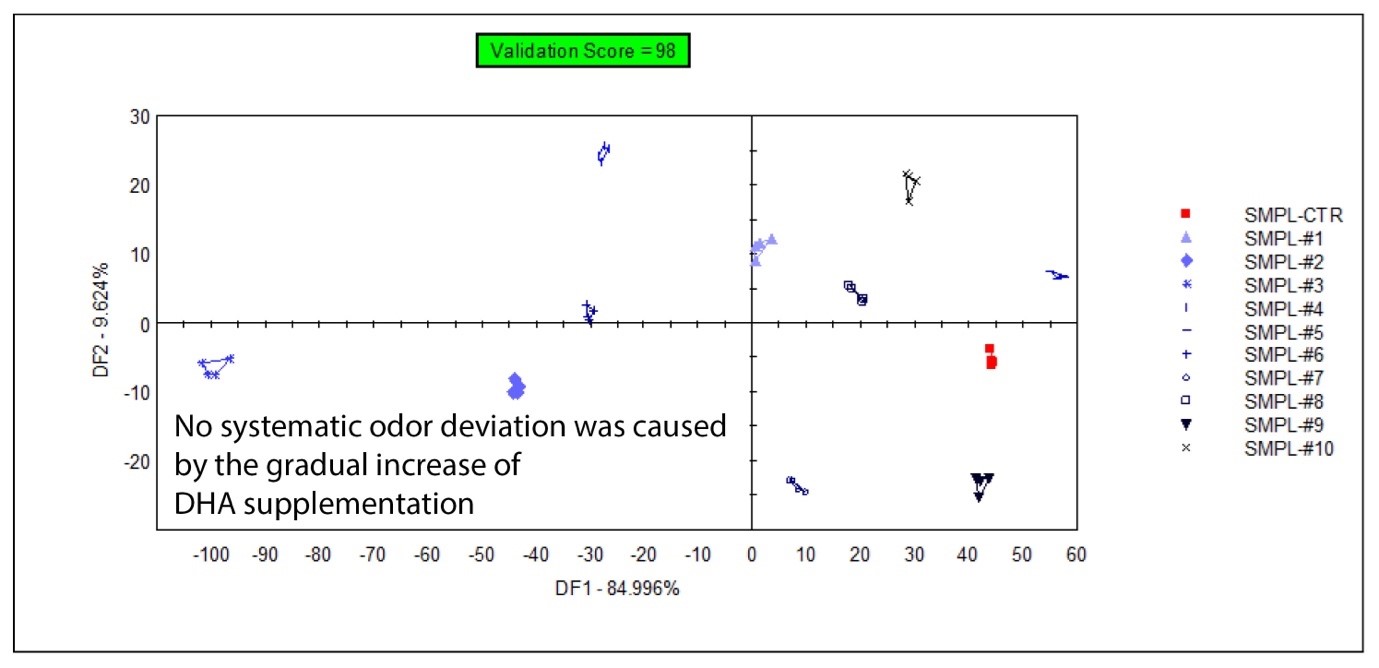The market for foods enriched with health-promoting ingredients having proven beneficial physiological effects is expanding. However, consumers do not prefer deviations from the flavors and aromas they have known so far, so it is important to keep in mind and monitor the effect of new ingredients on the aroma during development. In the scientific journal Foods, we published the results of our research conducted together with colleagues at Hungarian University of Agriculture and Life Sciences, in which we examined the effect of a special DHA supplement of vanilla shake powder on the sensory properties.
Micro-encapsulated microalgae oil supplementation has no systematic effect on the odor of vanilla shake – test of an electronic nose
Haruna Gado Yakubu, Omeralfaroug Ali, Imre Ilyés, Dorottya Vigyázó, Brigitta Bóta, George Bazar, Tamás Tóth, András Szabó
In this study, we aimed to carry out the efficient fortification of vanilla milkshakes with micro-encapsulated microalgae oil (brand: S17-P100) without distorting the product’s odor. A 10-step oil-enrichment protocol was developed using an inclusion rate of 0.2 to 2 w/w%. Fatty acid (FA) profile analysis was performed using methyl esters with the GC-MS technique, and the recovery of docosahexaenoic acid (C22:6 n3, DHA) was robust (r = 0.97, p < 0.001). The enrichment process increased the DHA level to 412 mg/100 g. Based on this finding, a flash-GC-based electronic nose (e-nose) was used to describe the product’s odor. Applying principal component (PC) analysis to the acquired sensor data revealed that for the first four PCs, only PC3 (6.5%) showed a difference between the control and the supplemented products. However, no systematic pattern of odor profiles corresponding to the percentages of supplementation was observed within the PC planes. Similarly, when discriminant factor analysis (DFA) was applied, though a classification of the control and supplemented products, we obtained a validation score of 98%, and the classification pattern of the odor profiles did not follow a systematic format. Again, when a more targeted approach such as the partial least square regression (PLSR) was used on the most dominant sensors, a weak relationship (R² = 0.50) was observed, indicating that there was no linear combination of the qualitative sensors’ signals that could accurately describe the supplemented concentration variation. It can therefore be inferred that no detectable off-odor was present as a side effect of the increase in the oil concentration. Some volatile compounds of importance in regard to the odor, such as ethylacetate, ethyl-isobutarate, pentanal and pentyl butanoate, were found in the supplemented product. Although the presence of yeasts and molds was excluded from the product, ethanol was detected in all samples, but with an intensity that was insufficient to cause an off-odor.

Access the full paper free of charge on the website of the journal:
